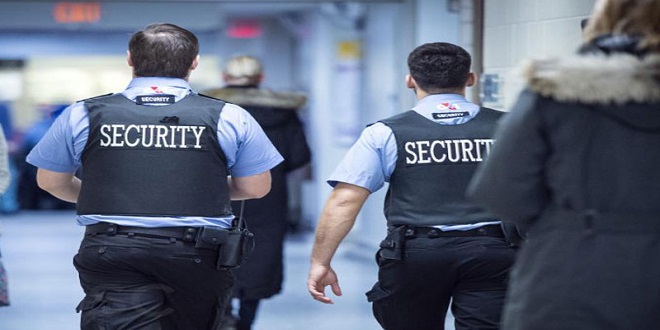Security guards have a growing importance in today’s society. Hospitals are places where patients go to get medical treatment and care that can often save their lives. These facilities need to be as secure and safe as possible. The security guards are vital in the protection and security of patients, staff, visitors, and other hospital guests.
1. Checking Visitors at the Premises
Hospital visitors pose the greatest risk to patients and staff. Theft can be a serious problem because patients have the freedom to roam around the hospital and take items from any room. Many hospitals have visitation times and require that patients rest.
To ensure that patients are safe and healthy, these rules should be followed and enforced with security measures. Every medical facility must adhere to a code for conduct. Verbal and physical abuse are not allowed. Security guards ensure that standards are upheld for both hospital staff and patients.
2. Monitor Hospital Access
Security personnel at hospitals assist with securing vulnerable access points such as emergency rooms, intensive care units and behavioural health sections. To prevent any untoward events, the guards monitor all activities.
Security guards are able to operate the CCTV cameras but they also screen visitors personally for increased security. The hospital’s exit and entrance points will be protected at all times.
3. Identification and protection
Security officers at hospitals are responsible for monitoring the hospital and its grounds. They also look for potential problems and take precautions to reduce or resolve them. They will also manage access to ensure that everyone present has a valid reason to be there, and eliminate anyone who doesn’t.
They will keep an eye on potential terrorist acts and violent crimes, monitor CCTV and respond to emergency calls. A trained security guard at a hospital will perform other duties such as giving directions and providing direction.
4. Parking Lot Maintenance
Professional security guards are required to watch over large parking lots at hospitals. They must be available seven days a week and 24 hours a night. While CCTV cameras are useful, they can’t control traffic and cannot monitor it. Guards can organize cars in parking lots to ensure optimal control by controlling speeders and traffic.
Ambulances and other emergency vehicles will find it easier to park in and out of parking lots. To ensure the safety and well-being of patients, ambulances must be easily accessible.
5. Take on Violence
Healthcare workers and social workers are especially vulnerable to violence at their jobs. Hospital violence has increased over time. Sometimes, patients or visitors may threaten or harm staff members. These threats and injuries can be prevented by security personnel. Your security personnel will be trained to respond immediately to any violence or physical assaults.
6. Theft Control
Hospitals are often the targets of theft and vandalism. Theft prevention is a priority for security personnel. They ensure that hospital property is secure from unapproved individuals. Stealing medication from hospitals is a serious offense. You should consider event security hiring to hire a security guard who has the right training to handle such situations.
7. Avoid disorderly behavior
While violence is always a problem to solve, disorderly behavior can also have negative effects. It is essential to calm hostile guests and patients. This responsibility falls to the doctors, nurses, or other hospital staff if security officers are not present. Inappropriate behavior by security personnel can cause serious harm to patients at the hospital. These individuals are dealt with by hospital security officers who ensure that they don’t cause any inconvenience to patients or staff.
8. Protect your property
Patients who have sustained serious injuries or are mentally ill can experience hostile emotions. There are two possible outcomes: a brawl could break out or patients may get agitated and inflict injury to hospital property. Hospital security personnel can help prevent property damage.
9. Protect restricted areas
Hospitals have a wide range of medical supplies such as x-ray machines and ventilators. There are also areas that visitors should not enter. Trained security personnel can monitor them and stop visitors from entering those areas. They make sure that only hospital staff and employees have access to medical equipment and machines.
They monitor hospital cameras for security improvements and track suspicious visitors. This helps to protect valuables.
10. Spot potential threats
Hospitals are vulnerable just as any other building housing many people. At any time, the facilities can be subject to theft, violence or assault. If the hospital’s property is threatened, it could cause serious harm to patients. These potential risks can be identified and mitigated by hiring skilled security personnel.
Event security professionals can spot any threat and prevent it from becoming a problem. They are able to spot thieves, vandals and other strange objects within the immediate vicinity of your hospital.
11. Help During Emergencies
Medical emergencies can occur anywhere there is a hospital. The following are the primary responsibilities of a hospital security guard:
Direct patients to the right wards.
Management of an injured or sick person.
Controlling movements
The guards provide support to medical staff and maintain civility within the building.

